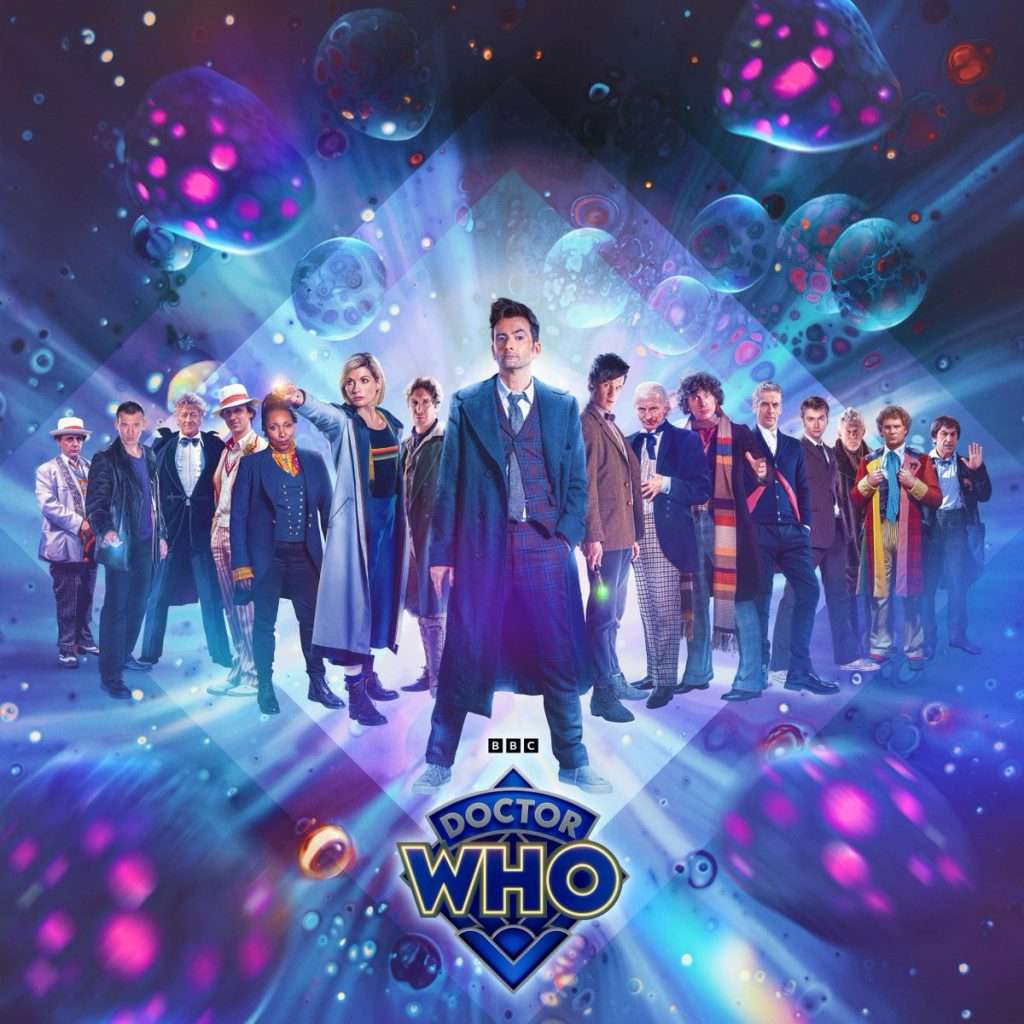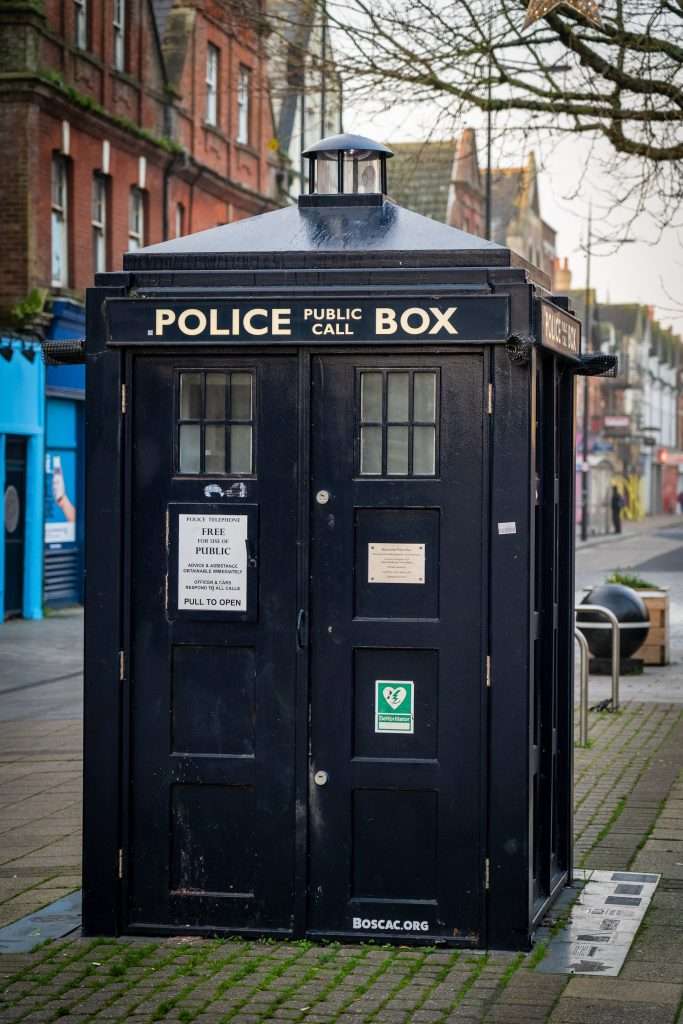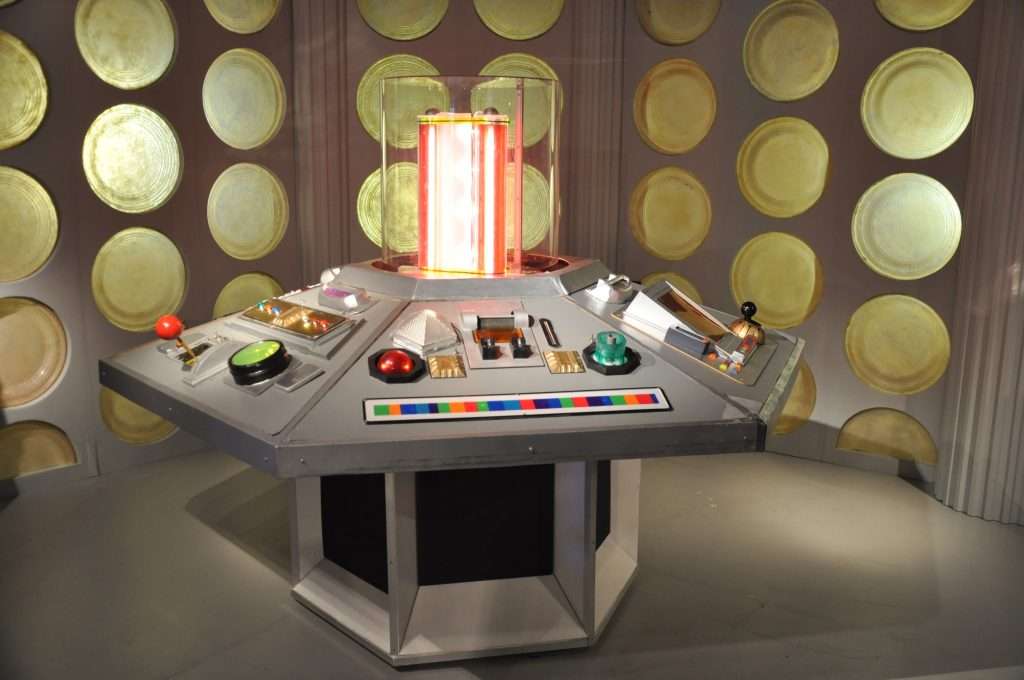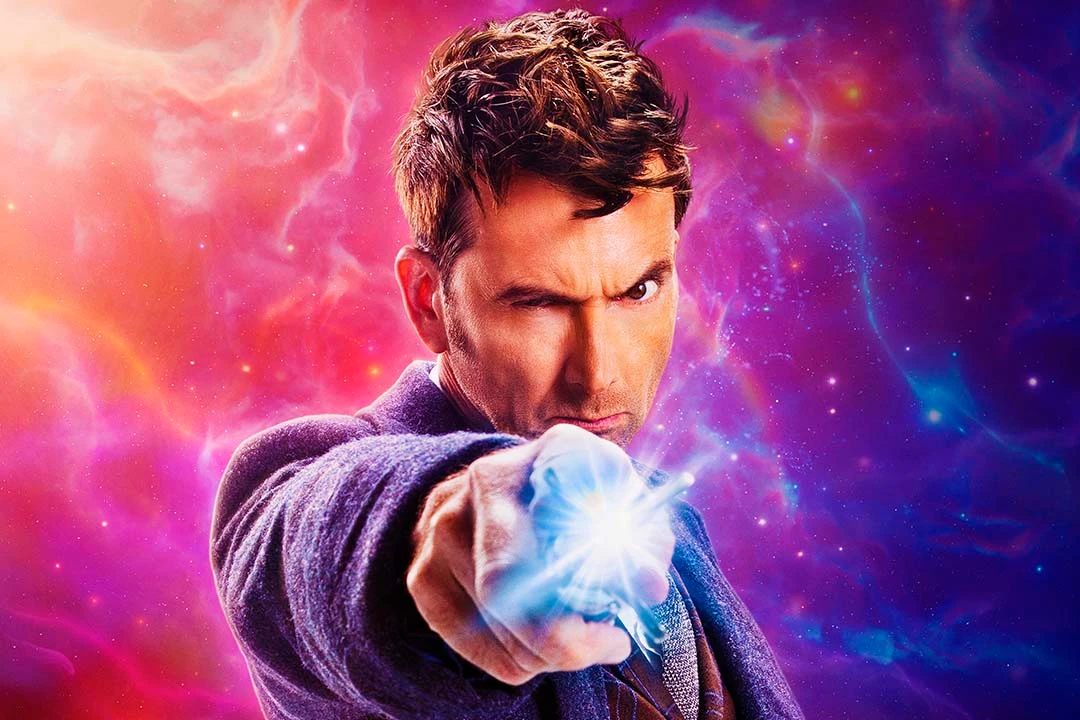Today, Britain’s longest-running SFFH show turns the big 6-0. To celebrate, Brian M. Milton reflects on the generational influence of our favourite Time Lord. We’d love to hear your memories and thoughts about Doctor Who, too! Let us know in the comments at the bottom of this article.

Image courtesy of BBC Studios
Doctor Who, the popular children’s programme that adults adore, is sixty years old today. At times it has been a huge cultural juggernaut—and at others a slightly baffling “is that still going?†curio—but always, to my nerdy mind, with something to recommend it. But what is its influence beyond my mind and bank balance?
In some ways I’d contend that Doctor Who has had a huge influence on popular culture. A voluminous bag is often referred to as TARDIS-like. Daleks are a commonly known evil (and the butt of many stair-climbing gags) and Tom Baker is known almost exclusively as that bloke in the long scarf. The show’s influence extends all across the cultural landscapes, with it being almost impossible to hurl a brick without hitting a writer, artist or scientist who admits to having watched it as a child and feeling inspired towards their adult occupation—never mind the musicians who couldn’t get past that theme tune, or the designers, special effects people and model makers who all cite the show as the thing that got them into their obsession.

But in many ways the show is also not just influential in and of itself, but as a funnel through which earlier influences are transmitted down the year. Many, many stories in Doctor Who ‘borrow’ heavily from earlier works and without this those works might be less well-known now. How many people saw the show in its mid-70s gothic pomp and found themselves trying out the Hammer films and then the novels they were based on? Would the Quatermass serials of the Fifties be so well-remembered now without them being so influential on both the early creation, and specifically the Pertwee era, of Doctor Who?
Doctor Who was created in a time in the 1960s where television was just starting to find its feet as a thing in its own right. Where early TV was largely based on stage adaptations, by the ‘60s these were giving way to works specifically written for TV. Despite the tiny budgets and studios, the stories were stretching out in every direction. SF, historicals, dramas and police shows were all pushing at the boundaries of what could be done. Into this came a show that can be loosely described as ‘some people go somewhere in a magic box and fight bad guys’. It hoovered up every idea going around at the time and repackaged it for family viewing. School history books, war memories, adventure serials and wild space operas were all in the mix right from the start. Then later came politics, loss of empire, gothic horror, ecological fears, Buddhism, Gulliver and more, right through to German Expressionism—basically anything and everything that was going on was pulled in by a production team fighting for the right to keep producing the show. Nothing was off-limits, and all these influences come down through the evolution of the show and are there to influence new viewers now.
One of the most obvious influences was the work of Nigel Kneale, and specifically his Quatermass serials. These see a wise, older scientist character (no doubt influenced by earlier literary scientists) save the world while railing against the stupidity of government and military. This both led into the creation of the original 1963 Doctor Who, but also heavily contributed to its first colour series in 1970.

The gothic horror period of 1975 to ‘78 is a mix of contemporary Hammer stylings reimagined for a younger audience, with source material including Jekyll and Hyde, Egyptian Mummies, Frankenstein, The Masque of the Red Death, Agatha Christie and The Ballad of Flannan Isle all thrown in for good measure.
One of the ways in which the show has had a strongest effect is seen in those who watched, were influenced, and in their turn then contributed and so further influenced following generations. Douglas Adams is one; he watched the early episodes with his family, became a big fan of Doctor Who, and science fantasy in general, and channeled that into his own writing. That then led to him working on the show, firstly writing The Pirate Planet and then becoming script editor for a year and (accidentally) writing one of its greatest stories. At the same time, Adams was also working on his own radio series—you might have heard of it. Likewise, there are many working on the show today who can point to those Adams episodes as one of their inspirations to get into the TV business.
It is interesting to speculate that, without Who being the thing it is, would Douglas Adams have stuck to sketch comedy and so never have created Hitchhikers? And would someone like, say, Steven Moffat then never have mixed his comedy and timey-wimey writing to such great effect?
In a similar vein, without Who, would Terry Nation have stuck to comedy and ITC series and never have created Blake’s 7, another landmark in the BBC’s genre output? It’s hard to say, but if someone wants to give me a time machine and a crate of whisky I’ll gladly pop back to the BBC in 1963 and sell them on another Robin Hood series.

Of course, it is not just inside the show that these influences occur. Just as the producers cast their net wide, pulling in US moon missions or non-western viewpoints and philosophies, so those outside this universe mined Doctor Who for their own requirements. The most obvious being ITV attempting to compete through many different series, be they similar (Timeslip, Primeval) or uniquely different (Children of the Stones, Sapphire and Steel). The direct influence beyond Britain is harder to confirm, but when you see Bill and Ted in a time-traveling phone box or the Borg threatening to assimilate humanity, you do have to wonder. Not that you should always trace links, of course; for example, both Star Trek and Doctor Who had a planet Vulcan in 1966 purely by coincidence. It’s likely that many similarities in other things come down to being influenced by the same source material.
After sixty years, we can definitely say that Doctor Who is a major influence on current genre fiction and the public’s perception of it. And it’s certainly a major influence on my spending habits. Whether its long-term influence is more for the ideas that the writers and production crew came up with or for those ideas they enthusiastically stole from others is a question we can only answer with a trip in a Police Telephone Box into the far future where, I have my hopes, the series will live on.


